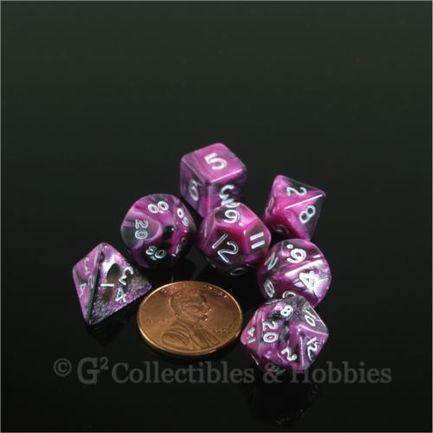 After a certain amount of time involved in our wondrous hobby, many players and GMs will consider the prospect of creating their own game. It’s an enticing notion, to have a game with your name on it and born of your creativity. The best place to start is with a small game of limited scope, dubbed Micro RPGs by the community at large. What follows are four essential aspects of a Micro RPG to help you create your very own. 1) A Unique Take While it’s not necessary that you reinvent the wheel with your small project, you must present your game in an original way. The game might be traditional fantasy, but perhaps all player characters are pixies. Maybe you’ve got a revised or simplified set of mechanics for an existing idea. Perhaps even you’re attempting to parody a well-known game series. Whatever your variant, fill it with your personality. Since you don’t have to create a perfectly balanced system that will appeal to everyone, feel free to make it wholly yours. 2) A Simple Mechanic No Micro RPG should be too complex that it couldn’t be learned in a single sitting. Since most players will only turn to a Micro RPG once every so often (like so many board games), your game mechanics should be easy to grasp even by hobby novices. This doesn’t mean that you shouldn’t address holes in your system, only that not every aspect of life has to be given a stat and a dice roll. Keep your system focused on the reasons why you’re playing. Is it a game about space pirates? Give players a “plunder” skill that covers everything from raiding, to stealing, to leading a boarding party. Is combat a non-issue for your game? Eschew hit points entirely. So long as you keep everything simple, your game will be ready to be played at the drop of a hat (such as when your friends are sitting around thinking of something to do). 3) A Smattering Of Randomness To keep things fresh, I recommend allowing the dice to dictate some of the lesser aspects of the game. You can create a table of outcomes people can roll, or a deck of wacky items that everyone contributes to prior to the game’s start. Part of the enjoyment of any roleplaying game is the drama of the dice roll. Will a player’s attempts to flee from a demon succeed or fail? Will that treasure horde hold something awesome or something hilarious? Whatever path you choose, you should certainly include an element of uncertainty in your game. 4) A Spark Of Life Here follows the most important of the aspects listed. The energy that you bring to the game’s creation will be represented in its display. If you create it using your own creative methods and ideas, it will show at the table and your players will love it all the more. This spark can be anything from a wacky set of props that vary from game to game, the requirement of players to have shifting characteristics as the game progresses, or the spirit of competition (such as in the game Everyone Is John). Let that flicker of ingenuity guide your game and run with it. Sell it with your own enthusiasm, and your players will certainly jump on board. I wholeheartedly believe that every gamer has a game inside them waiting to spill out onto the table. If you’ve had an idea that you’ve been busting to share, this is the best place for it. Let us know what you’re working on or what you want to create! David Horwitz is a gamer and freelance writer with an obsession for exploring new forms of leisure. He’s currently creating a Micro RPG (tentatively) called Fame, wherein players take control of actors and their own characters in an under-budget film. If you’re looking for an inquisitive mind and a deft hand, or just want to chat about gaming, contact him at www.davidhorwitzwrites.com/contact Picture reference: http://www.ebay.com/cln/xiagen/mini-dice/135436579016 Leave a Reply. |
All blog materials created and developed by the staff here at High Level Games Archives
April 2023
Categories
All
|
Proudly powered by Weebly



 RSS Feed
RSS Feed